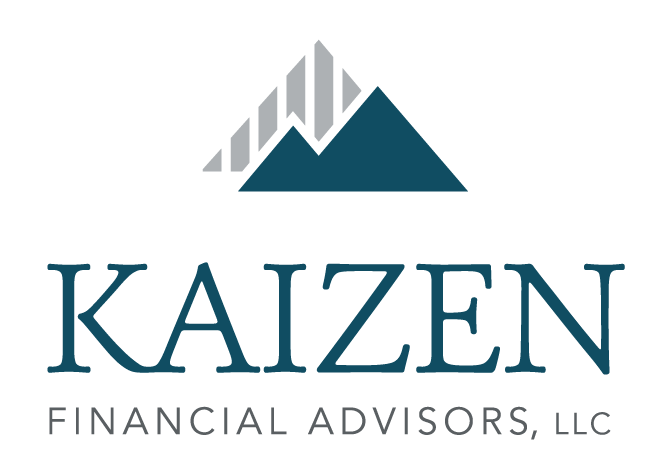The Major Retirement Planning Mistakes
Submitted by Kaizen Financial Advisors, LLC on May 4th, 2018
Much has been written about the classic financial mistakes that plague start-ups, family businesses, corporations, and charities. Aside from these blunders, there are also some classic financial missteps that plague retirees.
Calling them “mistakes” may be a bit harsh, as not all of them represent errors in judgment. Yet whether they result from ignorance or fate, we need to be aware of them as we plan for and enter retirement.
Leaving work too early. As Social Security benefits rise about 8% for every year you delay receiving them, waiting a few years to apply for benefits can position you for greater retirement income. Filing for your monthly benefits before you reach Social Security’s Full Retirement Age (FRA) can mean comparatively smaller monthly payments. The FRA varies from 66-67 for people born between 1943-59. For those born in 1960 and later, the FRA is 67.1,2
Some of us are forced to make this “mistake.” The Center for Retirement Research at Boston College says 56% of men and 64% of women apply for Social Security before full retirement age. Still, if you can delay claiming Social Security, that positions you for greater monthly benefits.1
Underestimating medical bills. In its latest estimate of retiree health care costs, Fidelity Investments says that a couple retiring at 65 will need $275,000 to pay for future health care costs. That estimate may be conservative, as Fidelity’s calculation does not include eye care, dental care, or long-term care expenses.3
Taking the potential for longevity too lightly. Actuaries at the Social Security Administration project that around a fourth of today’s 65-year-olds will live to age 90, with about one in ten living 95 years or longer. The prospect of a 20- or 30-year retirement is not unreasonable, yet there is still a lingering cultural assumption that our retirements might duplicate the relatively brief ones of our parents. The American College New York Life Center for Retirement Income recently polled people about longevity, and 47% of respondents over age 60 underestimated the remaining life expectancy for an average 65-year-old male.4
Withdrawing too much each year. You may have heard of the “4% rule,” a popular guideline stating that you should withdraw only about 4% of your retirement savings annually. Many cautious retirees try to abide by it.
So, why do others withdraw 7% or 8% a year? In the first phase of retirement, people tend to live it up; more free time naturally promotes new ventures and adventures and an inclination to live a bit more lavishly.
Ignoring tax efficiency & fees. It can be a good idea to have both taxable and tax-advantaged accounts in retirement. Assuming your retirement will be long, you may want to assign specific investments to its “optimal location” – that is, the taxable or tax-advantaged account that may be most appropriate as you pursue an optimal allocation for the whole portfolio.
Many younger investors chase the return. Some retirees, however, find a shortfall when they try to live on portfolio income. In response, they move money into stocks offering significant dividends or high-yield bonds – which may be bad moves in the long run. Taking retirement income off both the principal and interest of a portfolio may give you a way to reduce ordinary income and income taxes.
Fees have an impact. The Department of Labor notes that a 401(k) plan with a 1.5% annual fee will eventually leave a participant with 28% less money than one with a 0.5% annual fee.5
Avoiding market risk. Equity investment does invite risk, but the reward may be worth it. In contrast, many fixed-rate investments offer comparatively small yields these days.
Retiring with big debts. It is hard to preserve (or accumulate) wealth when you are handing portions of it to creditors.
Putting college costs before retirement costs. There is no “financial aid” program for retirement. There are no “retirement loans.” Your children have their whole financial lives ahead of them. Try to refrain from touching your home equity or your IRA to pay for their education expenses.
Retiring with no plan or investment strategy. An unplanned retirement may bring terrible financial surprises; the absence of a strategy can leave people prone to market timing and day trading.
These are some of the classic retirement planning mistakes. Why not plan to avoid them? Take a little time to review and refine your retirement strategy in the company of the financial professional you know and trust.
From day one, At Kaizen we work with our clients to plan for all aspects of their retirement. Kaizen Clients have a plan that evolves with the ups and downs of their life. If you are an individual facing some big retirement choices, we can help.
This material was prepared by MarketingPro, Inc., and does not necessarily represent the views of the presenting party, nor their affiliates. This information has been derived from sources believed to be accurate. Please note - investing involves risk, and past performance is no guarantee of future results. The publisher is not engaged in rendering legal, accounting or other professional services. If assistance is needed, the reader is advised to engage the services of a competent professional. This information should not be construed as investment, tax or legal advice and may not be relied on for the purpose of avoiding any Federal tax penalty. This is neither a solicitation nor recommendation to purchase or sell any investment or insurance product or service, and should not be relied upon as such. All indices are unmanaged and are not illustrative of any particular investment.
Citations.
1 - cnbc.com/2017/06/02/how-married-couples-can-maximize-their-social-security-benefits.html [6/2/17]
2 - ssa.gov/planners/retire/retirechart.html [1/8/18]
3 - cbsnews.com/news/how-to-cope-with-health-care-costs-in-retirement/ [9/12/17]
4 - fool.com/investing/2017/06/07/dont-make-this-big-social-security-mistake.aspx [6/7/17]
5 - cnbc.com/2017/04/06/what-you-dont-know-about-401k-fees-can-cost-you-plenty.html [4/6/17]

